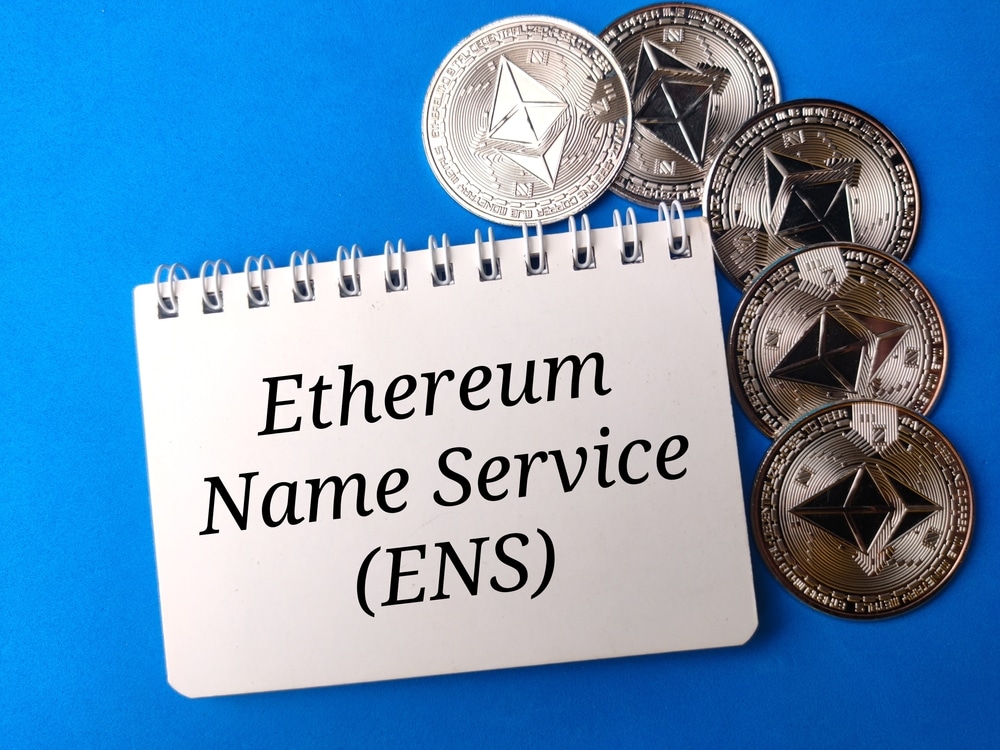Ethereum Name Service is a popular naming protocol that lets crypto users attach readable names to their digital asset addresses. To better understand how this platform works, continue reading this guide.
Ethereum Name Service (ENS) functions like the Domain Name System, which allows people to link readable domain names to internet protocol (IP) addresses. So, instead of writing 172.63.156.262 into the address box, write tokenhell.com, and you’ll be directed to this website.
ENS, on the other hand, lets Ethereum users create customized names for their not-so-easy-to-read crypto addresses. Therefore, instead of having a crypto address like 0xk0lDf23F8c5bF457D7a95c3fc277aEc6Ed32CAF4, you can rename it “frank.eth” using the ENS protocol. This human-readable address can be shared with other crypto users to send you digital assets, including NFTs.
Meet the ENS Team
ENS protocol was founded by two members of the Ethereum Foundation, Nick Johnson and Alex Van de Sande, in 2017. The following year, Johnson launched a new organization, True Names LTD, to manage ENS. The company comprises solidity developers, with some drawn from the Ethereum Foundation.
True Names Limited is managed through a DAO (Decentralized Autonomous Organization). This means holders of the ENS tokens have the right to decide on various proposals affecting the company.
What Makes ENS Special?
As mentioned, your ENS address allows people to transfer digital assets to your crypto address. And since the address is readable and can easily be remembered, it prevents crypto users from sending tokens to the wrong wallet address.
Moreover, the ENS doesn’t have security issues like the Domain Name System, which is vulnerable to cyber-attacks. The reason why names stored in ENS cannot be deleted or hacked is because they are maintained on a decentralized network, Ethereum.
ENS vs. Unstoppable Domains
ENS is not the only naming protocol in the crypto space. Its main rival is Unstoppable Domains. Both are built on Ethereum. However, they have some major differences between them. While ENS is operated by a non-profit organization, Unstoppable Domains, on the other hand, is a business-focused project.
Further, ENS addresses come with expiration dates, while those from Unstoppable Domains do not expire.
How Does ENS Work?
ENS runs on two smart contracts. One powers the Ethereum Name Service registry, which stores all the registered domains, and the second one, known as Resolver, makes the domain names machine-readable addresses, enabling them to facilitate crypto transactions.
How Do You Get an ENS Domain?
To create a customized name for your crypto address, you first need a wallet that supports the Ethereum blockchain. We recommend the popular choice, MataMask. After setting up the wallet, go to ens.domains and search for your preffered domain name. Once it comes up, complete the registration procedure and link the name with your MetaMask wallet. Note that this process is subject to gas fees.
Can you register more than one domain name? Yes! That’s possible. Several people hold multiple domain names that they sell to other crypto enthusiasts. For example, weather.eth and exchange.eth domains recently sold for 350 ETH and 6,650 ETH, respectively.
ENS Governance Token
As stated earlier, the organization running ENS is decentralized and managed by a DAO known as ENS DAO. To be a member, you need to hold the ENS token, which serves as a governance and utility token. With this crypto asset, you can raise and vote for proposals.
ENS Tokenomics
ENS is built using the ERC-20 standard. Its total supply is capped at 100 million tokens. Here is how the tokens were allocated: 20% to ENS contributors, 30% airdrop to domain name holders, and 50% to Community treasury.
When the ENS developers launched the governance token, it was airdropped to wallet addresses with ENS domain names. Holders received the token depending on the duration they held the domains.
As of August 2023, there are 25.7 million ENS tokens in circulation. Data from CoinGecko shows the crypto asset is priced at $8.17, with a market capitalization of $210 million. ENS can be traded on popular crypto exchanges like KuCoin, Kraken, Binance, Bybit, Upbit, and Coinbase.
Conclusion
The lengthy and human-unreadable crypto addresses can be intimidating to beginners. ENS strives to eliminate this stumbling block to crypto adoption by availing easy-to-read addresses. Head over to ens.domains if you want to customize your wallet address and make it readable.
At Tokenhell, we help over 5,000 crypto companies amplify their content reach—and you can join them! For inquiries, reach out to us at info@tokenhell.com. Please remember, cryptocurrencies are highly volatile assets. Always conduct thorough research before making any investment decisions. Some content on this website, including posts under Crypto Cable, Sponsored Articles, and Press Releases, is provided by guest contributors or paid sponsors. The views expressed in these posts do not necessarily represent the opinions of Tokenhell. We are not responsible for the accuracy, quality, or reliability of any third-party content, advertisements, products, or banners featured on this site. For more details, please review our full terms and conditions / disclaimer.



